Developing refined growth while maintaining sacrifice branches can be a tricky balancing act. If the sacrifice branches are reduced, the future branches become strong. If sacrifice branches grow freely, the future branches can become weak.
We covered this in a previous post that looked at how to decandle selected branches while letting the sacrifice branches grow (see “BDS#13: Balancing vigor” for details).
This year I wanted to learn how pines would respond to the cutback-decandling technique (see “Stimulating back buds on black pine” for details about the approach).
Here’s a six year-old black pine in early July.
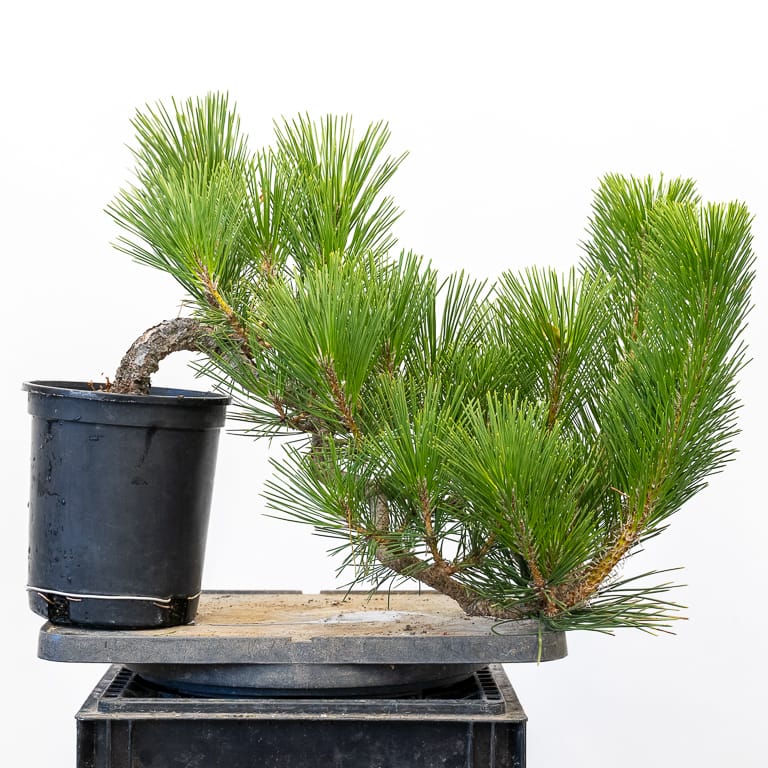
Six year-old black pine
And here’s what the tree looks like this week.
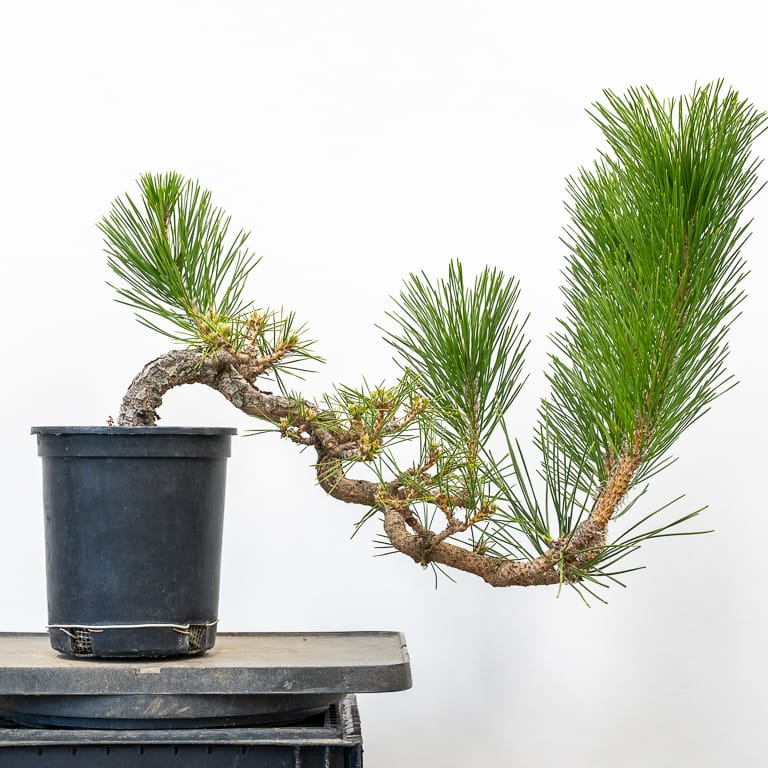
Cascade black pine – October, 2020
At a glance, the large sacrifice branches look unchanged, and the small interior branches grew very little. If you look closely, you can see that needle buds developed on most of the pruned branches.
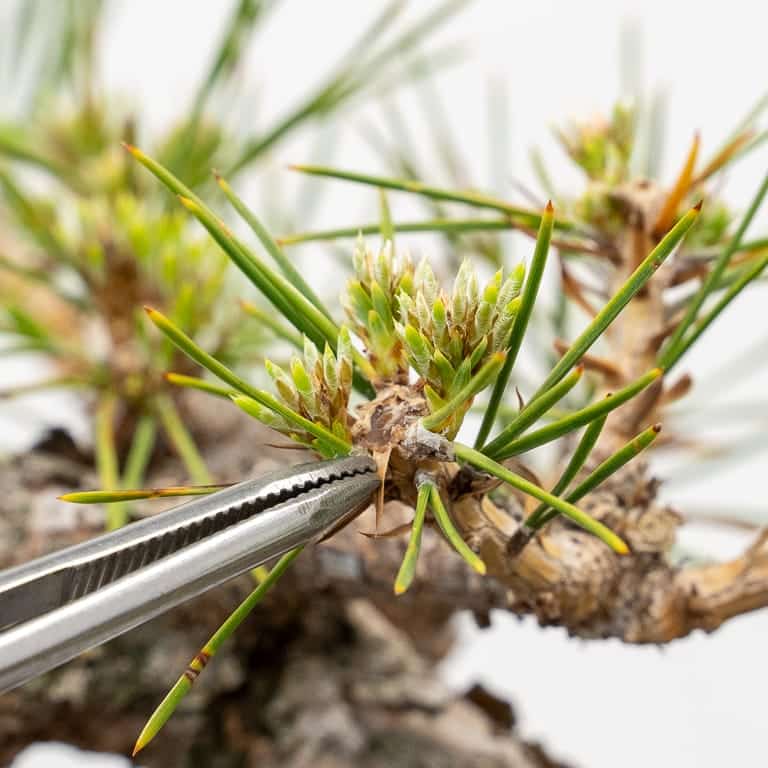
Needle buds growing on a strong branch
The weaker shoots produced buds that won’t open until next year.
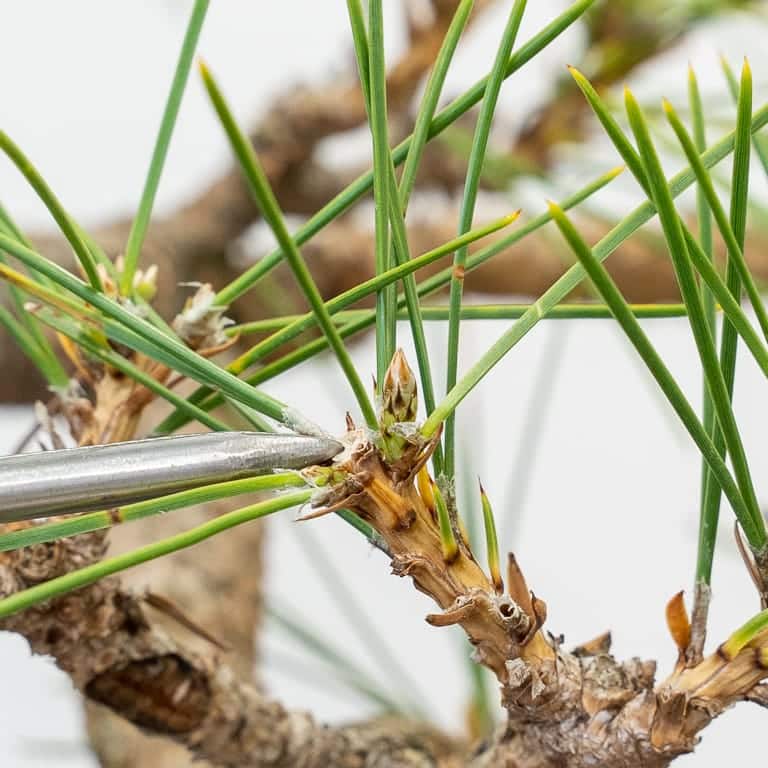
Needle bud that didn’t open
What’s the takeaway? Don’t expect needle buds to produce much mature growth when there are vigorous sacrifice branches on the tree. Here’s another example.
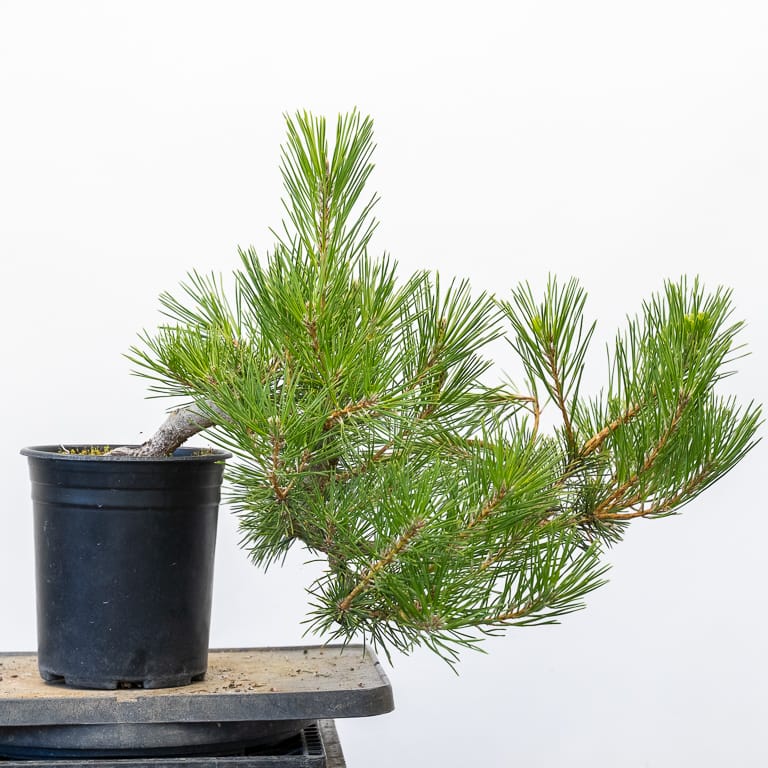
Six year-old black pine in July
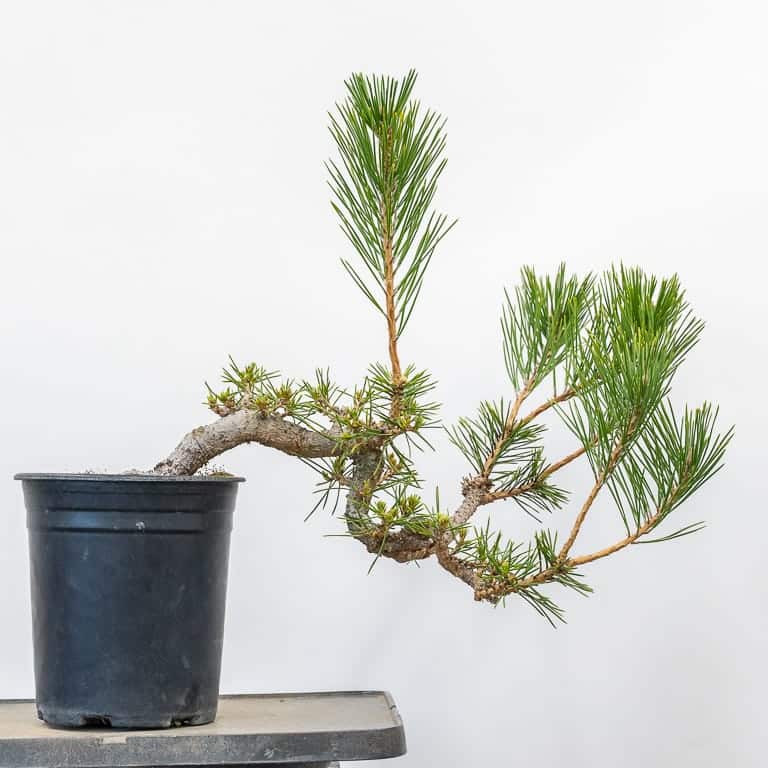
After cutback-decandling – October, 2020
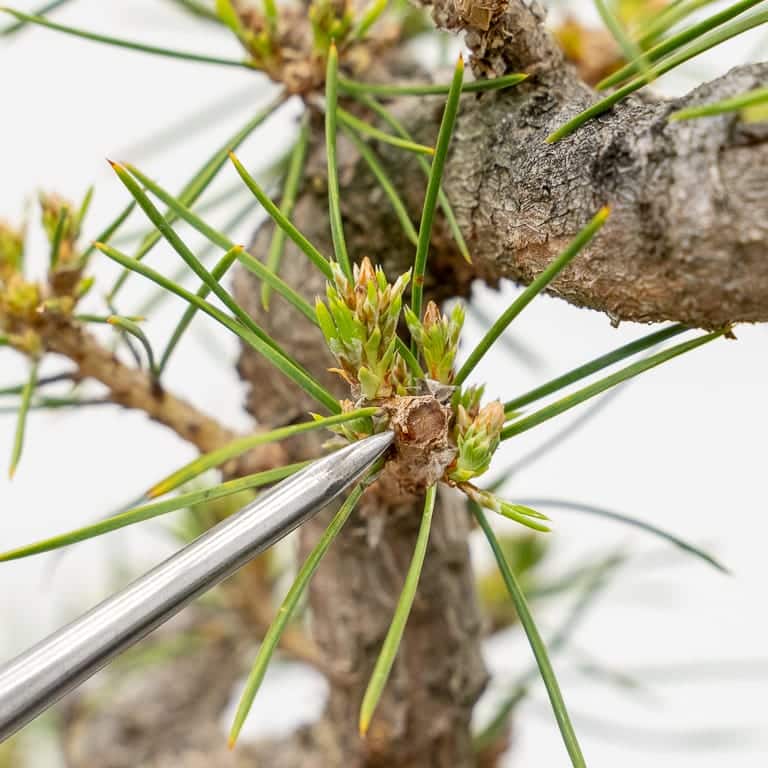
New growth on needle buds
To get a better sense of how I’d expect similar trees to respond to related techniques, here are two pines that were cutback-decandled, and one that was decandled according to standard approach.
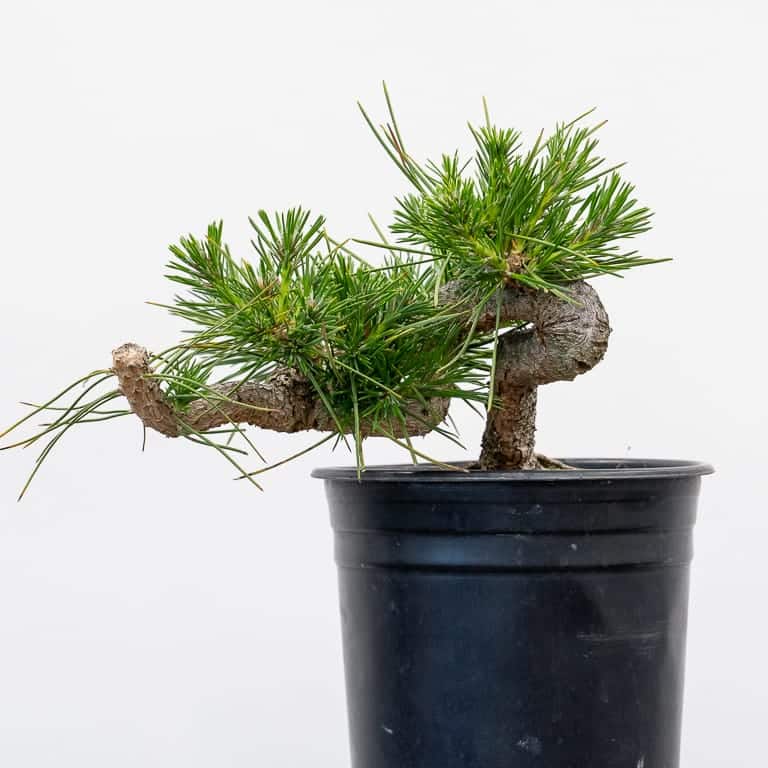
Five year-old pine after cutback-decandling – note that the sacrifice branch was removed
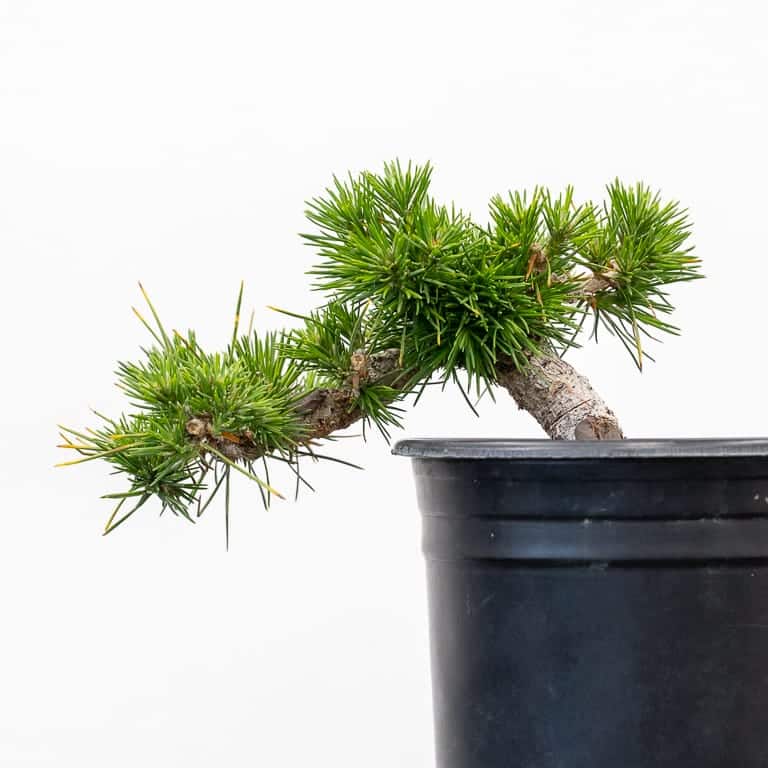
Another five year-old black pine after cutback-decandling
Both of these trees responded well to the approach of cutting back past the normal decandling point in an effort to stimulate needle buds. As long as there was no sacrifice branch on these trees, they had the resources to produce strong buds within a single growing season.
The final example is a young pine that was decandled as if it were a mature specimen. All of the spring growth was removed in July and the tree responded by producing adventitious buds.
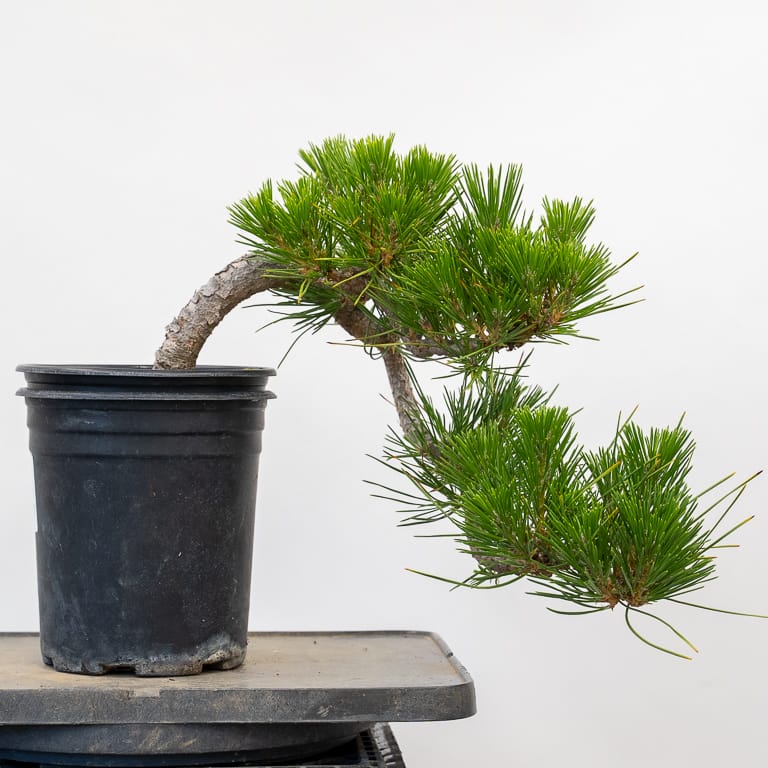
Summer growth on a five year-old black pine
The result of taking these diverse approaches is that I now have a better idea of what to do when I need shorter internodes on a young pine, and what to expect after taking action.
Looking for bonsai in Northern California?
I’ve put together a resource of bonsai professionals and vendors in Northern California. Some sell trees online, and others offer local pick-up.
If you’re looking for bonsai in the San Francisco Bay Area or beyond, check out the nurseries at the link below:
